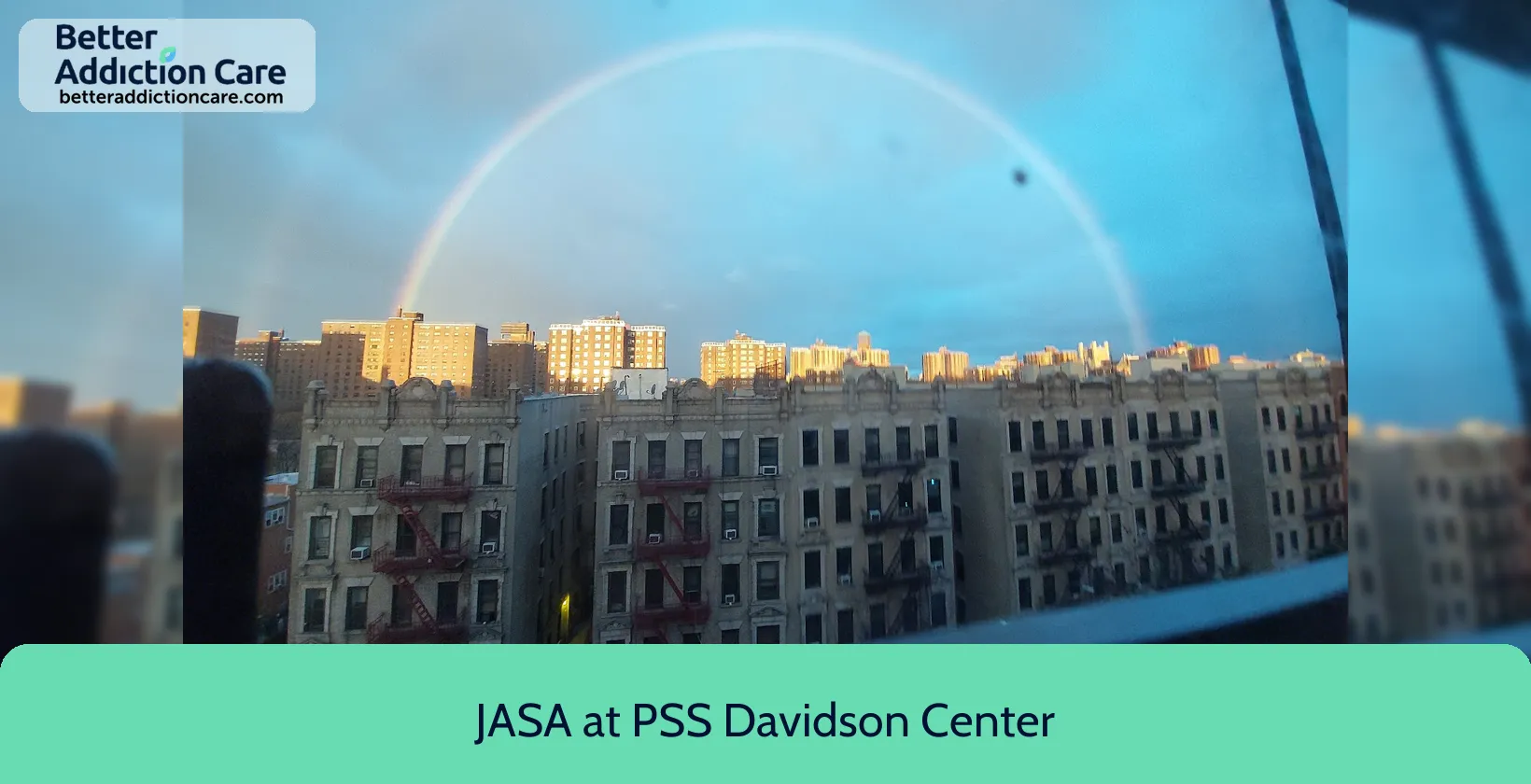JASA at PSS Davidson Center - Geriatric Mental Health
Overview
JASA at PSS Davidson Center - Geriatric Mental Health is a mental health treatment center for people seeking treatment near Bronx County. As part of their treatment modalities for recovery, JASA at PSS Davidson Center - Geriatric Mental Health provides couples/family therapy, group counseling, and cognitive behavioral therapy during treatment. JASA at PSS Davidson Center - Geriatric Mental Health is located in Bronx, New York, accepting cash or self-payment for treatment.
JASA at PSS Davidson Center - Geriatric Mental Health at a Glance
Payment Options
- Cash or self-payment
- Medicaid
- Medicare
- State-financed health insurance plan other than Medicaid
- Private health insurance
Assessments
- Screening for tobacco use
- Comprehensive mental health assessment
- Comprehensive substance use assessment
Age Groups
- Seniors or older adults
- Adults
- Seniors
Ancillary Services
- Family psychoeducation
Highlights About JASA at PSS Davidson Center - Geriatric Mental Health
6.71/10
With an overall rating of 6.71/10, this facility has following balanced range of services. Alcohol Rehabilitation: 8.00/10, Drug Rehab and Detox: 6.00/10, Insurance and Payments: 6.00/10, Treatment Options: 6.85/10.-
Alcohol Rehabilitation 8.00
-
Treatment Options 6.85
-
Drug Rehab and Detox 6.00
-
Insurance and Payments 6.00
Treatment At JASA at PSS Davidson Center - Geriatric Mental Health
Treatment Conditions
- Mental health treatment
- Substance use treatment
- Co-occurring Disorders
Care Levels
- Outpatient
Treatment Modalities
- Couples/family therapy
- Group counseling
- Cognitive behavioral therapy
- Dialectical behavior therapy
- Integrated Mental and Substance Use Disorder treatment
Get Help Now
Common Questions About JASA at PSS Davidson Center - Geriatric Mental Health
Contact Information
Other Facilities in Bronx
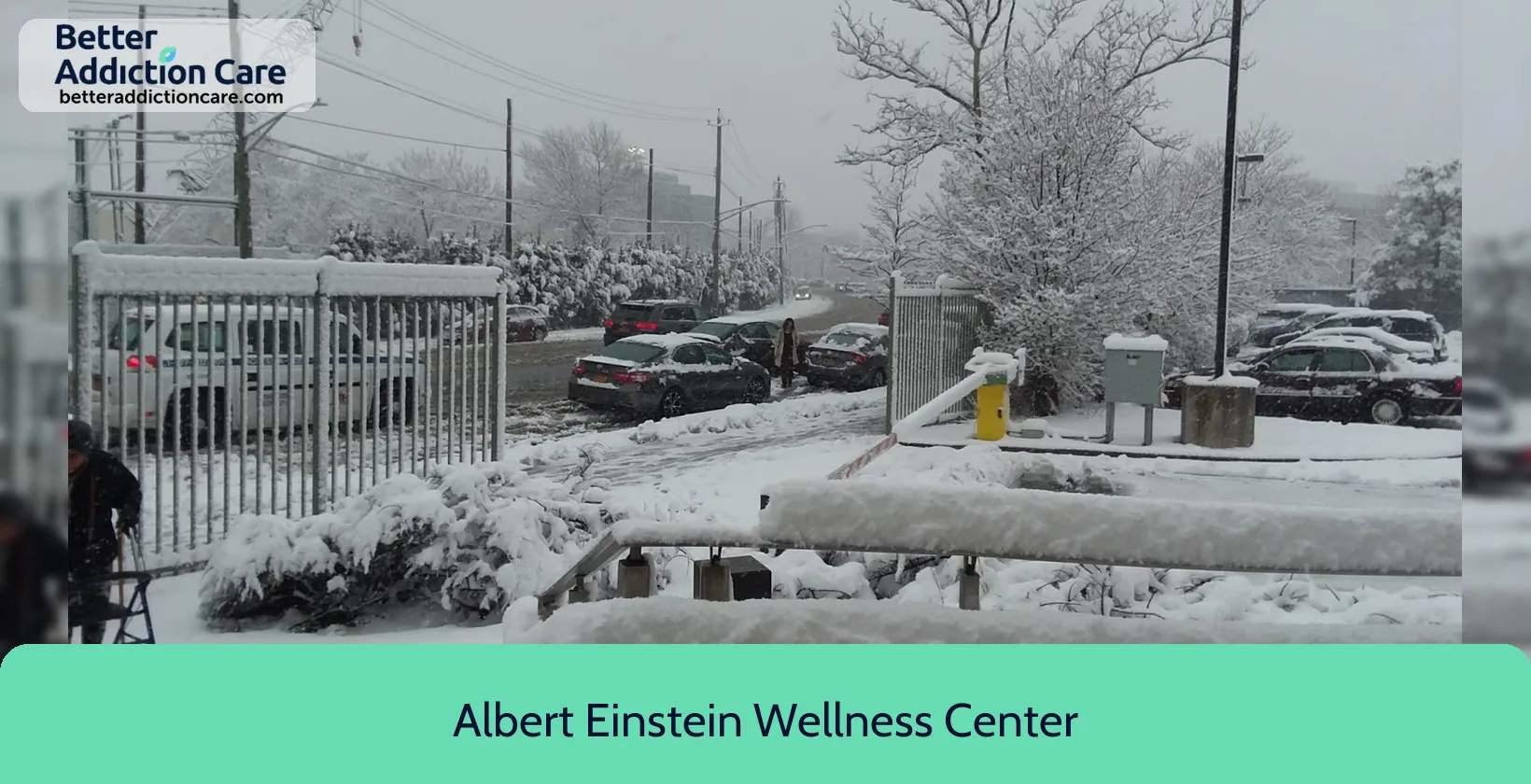
7.26
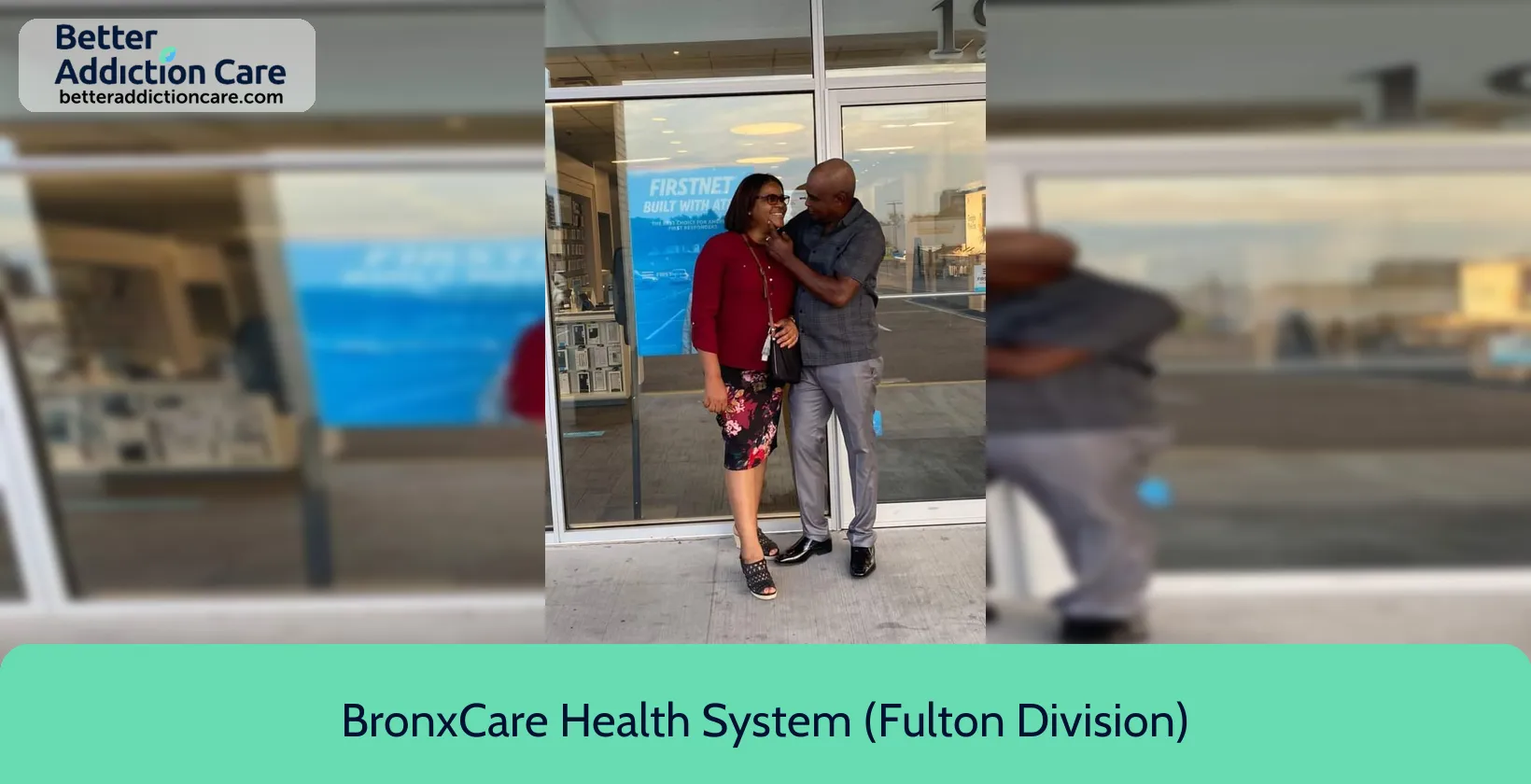
7.26
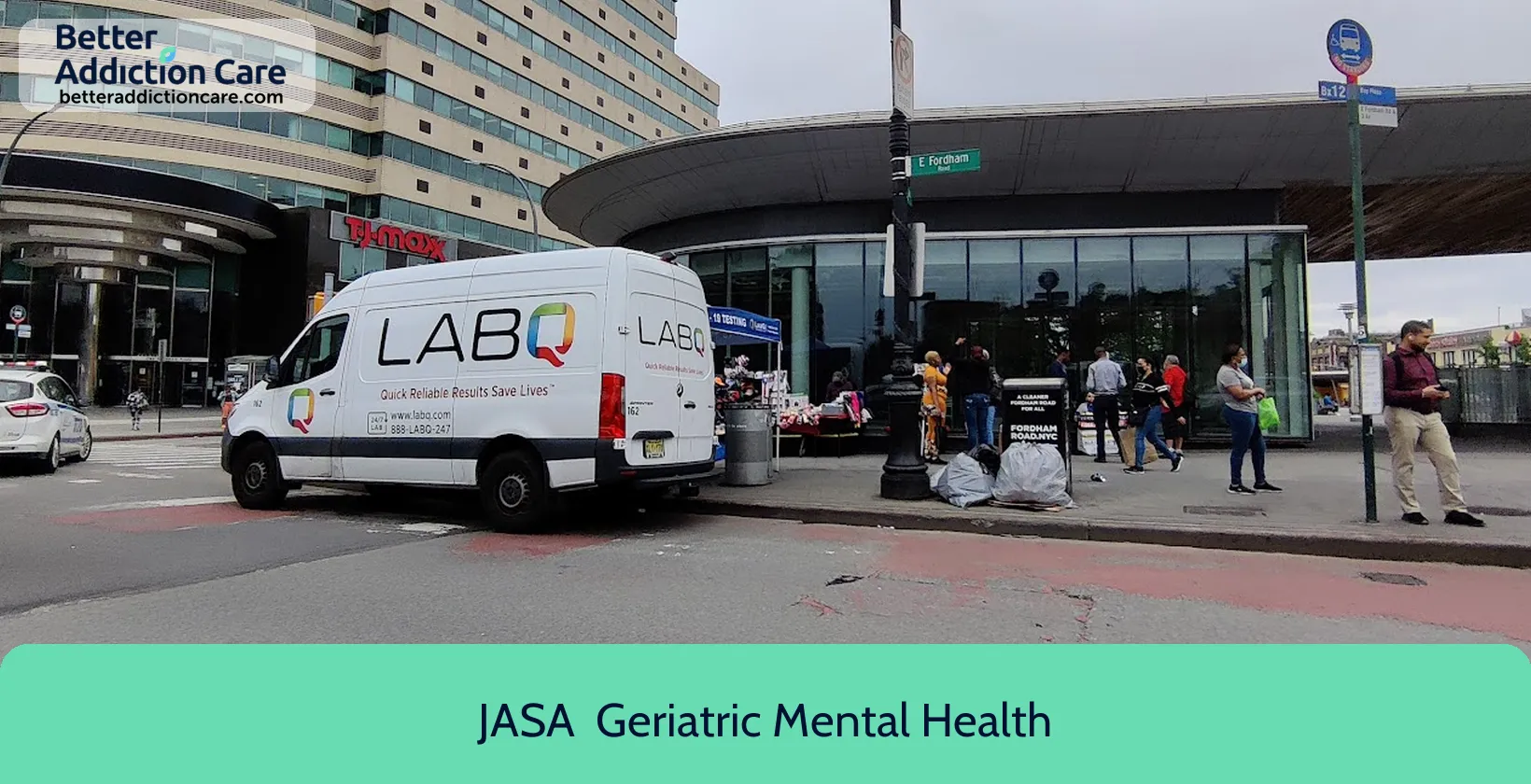
6.68
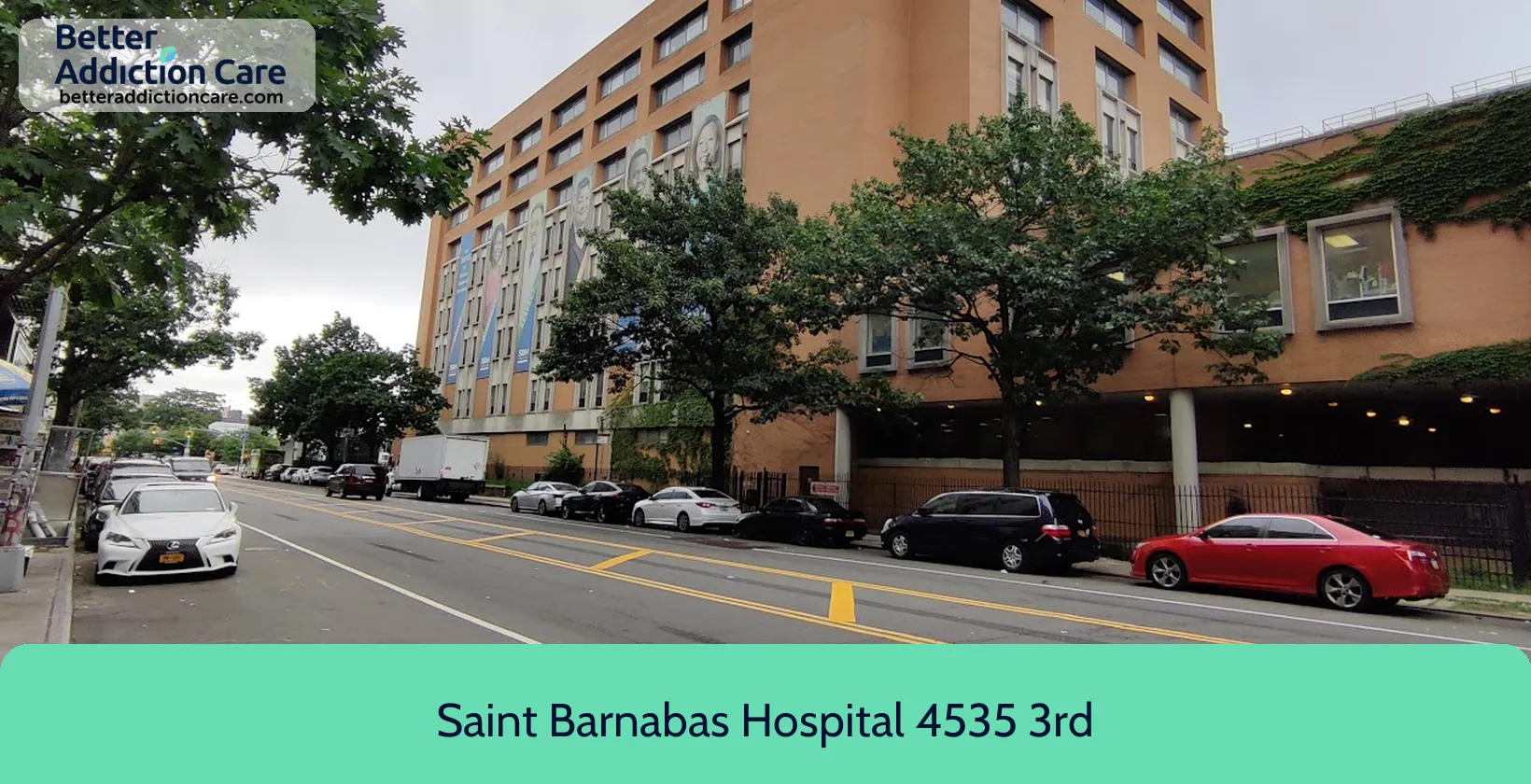
7.40
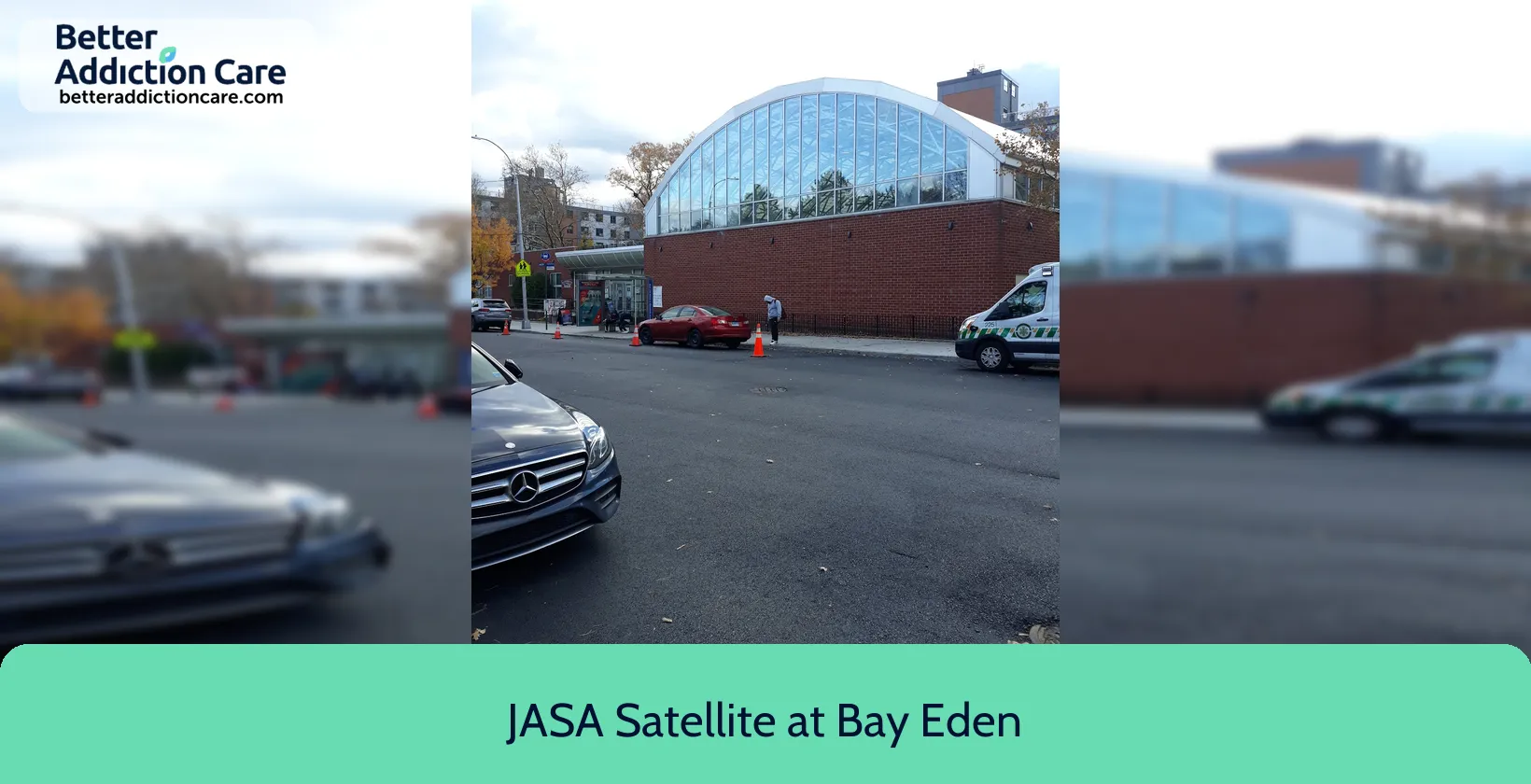
6.74

7.20

6.71

7.14
DISCLAIMER: The facility name, logo and brand are the property and registered trademarks of Montefiore Medical Center - SATP, and are being used for identification and informational purposes only. Use of these names, logos and brands shall not imply endorsement. BetterAddictionCare.com is not affiliated with or sponsored by Montefiore Medical Center - SATP.
